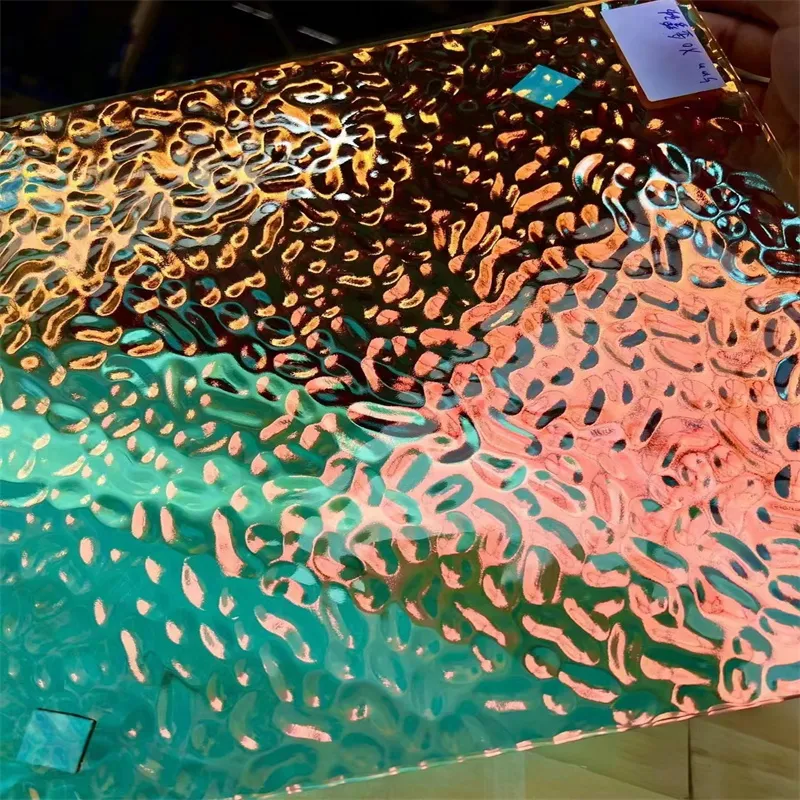Sep . 25, 2024 01:38 Back to list
extra clear toughened glass
The Advantages of Extra Clear Toughened Glass
In the realm of architectural design and construction, glass has become an increasingly popular material. Its ability to enhance aesthetics while providing practicality has made it a staple in modern designs. Among the various types of glass available, extra clear toughened glass stands out for its exceptional clarity and strength. This article explores the benefits and applications of extra clear toughened glass, highlighting why it is the preferred choice for many architects and builders.
What is Extra Clear Toughened Glass?
Extra clear toughened glass, often referred to as low-iron glass, is manufactured with a low iron content that significantly reduces the greenish tint typically associated with standard glass. This type of glass is then subjected to a toughening process that enhances its strength and safety. The toughening process involves heating the glass to high temperatures and then rapidly cooling it, which increases its resistance to impact and thermal stress. As a result, extra clear toughened glass is not only visually appealing but also exceptionally durable.
Clarity and Aesthetics
One of the most significant advantages of extra clear toughened glass is its unmatched clarity. The low iron content allows natural light to pass through with minimal distortion, making it an ideal choice for applications where transparency is crucial. From facades to interior partitions, this glass provides unobstructed views and enhances the overall aesthetic of a space. Its crisp, clean appearance is particularly favored in modern design, where minimalism and transparency are key elements.
Strength and Safety
Beyond its aesthetic appeal, the toughness of extra clear toughened glass is one of its most noteworthy features. This glass is significantly stronger than standard glass, making it highly resistant to breakage. Even when subjected to high impact or thermal fluctuations, extra clear toughened glass maintains its integrity much better than regular glass. In the unfortunate event of breakage, toughened glass shatters into small, blunt pieces that reduce the risk of injury, making it a safer option for both residential and commercial spaces.
extra clear toughened glass

Energy Efficiency
Extra clear toughened glass also contributes to energy efficiency in buildings. Its high clarity allows for maximum natural light ingress, reducing the need for artificial lighting during the day. When used in conjunction with low-emissivity (Low-E) coatings, this glass can help manage heat transfer, keeping interiors warm during winter and cool in summer. This not only enhances the comfort of occupants but can also lead to significant savings on energy bills.
Versatility in Applications
The versatility of extra clear toughened glass makes it suitable for a wide range of applications. It is commonly used in windows, doors, glass facades, skylights, and shower enclosures. Additionally, its aesthetic appeal has made it popular in furniture design, such as tables and shelving. The ability to fabricate this glass into various shapes and sizes allows architects and designers to incorporate it creatively into their projects.
Environmental Considerations
As the world increasingly turns towards sustainable building practices, extra clear toughened glass is a responsible choice. It is recyclable, and its use can contribute to green building certifications such as LEED (Leadership in Energy and Environmental Design). By incorporating this material, builders can contribute to a reduced carbon footprint while also enhancing the longevity and durability of their constructions.
Conclusion
In summary, extra clear toughened glass offers a unique blend of aesthetic beauty, strength, and practicality. Its clarity allows for breathtaking design possibilities, while its toughness ensures safety and durability. As energy efficiency becomes more critical in modern construction, the combination of these factors makes extra clear toughened glass a leading choice in contemporary architecture. Whether for residential or commercial projects, its benefits are clear, securing its place as a vital material in the future of architectural design.
-
Safety and Style with Premium Laminated Glass Solutions
NewsJun.24,2025
-
Reinvents Security with Premium Wired Glass
NewsJun.24,2025
-
Premium Float Glass Line for Modern Architecture
NewsJun.24,2025
-
Low Emissivity Glass for Energy-Efficient Architecture
NewsJun.24,2025
-
High-Performance Insulated Glass Solutions for Modern Architecture
NewsJun.24,2025
-
Elevates Interior Style with Premium Silver Mirror
NewsJun.24,2025
Related PRODUCTS














